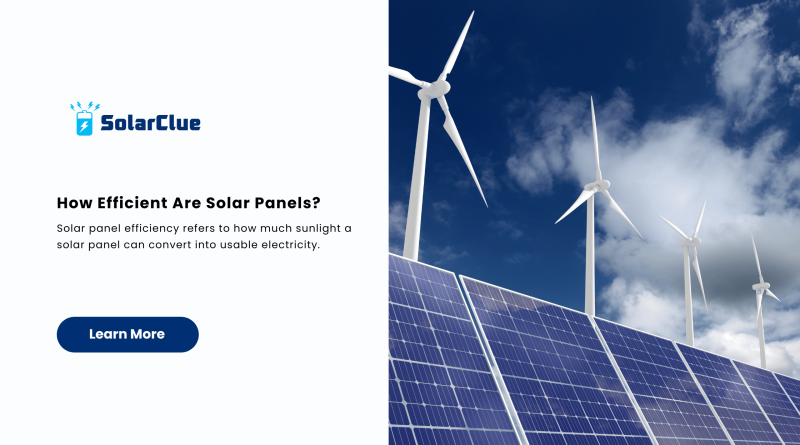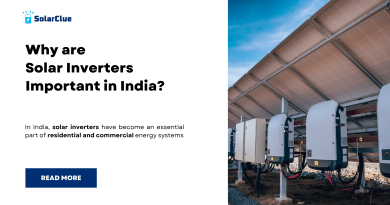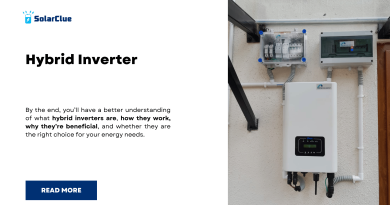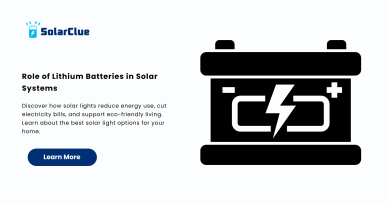How Efficient Are Solar Panels?
Solar panel efficiency refers to how much sunlight a solar panel can convert into usable electricity. Modern photovoltaic panels typically have an efficiency range between 15% and 22%, depending on factors such as technology, materials, and environmental conditions. Higher efficiency means more power generation in less space, making it crucial for both residential and commercial applications.
Table of Contents
Factors That Affect Solar Panel Efficiency
1. Type of Solar Panel
The type of solar panel you choose greatly impacts efficiency:
1. Monocrystalline Solar Panels: These have the highest efficiency, often exceeding 22%, because they are made from a single crystal structure, allowing electrons to move freely.
2. Polycrystalline Solar Panels: These are slightly less efficient (15%-17%) due to multiple crystal structures but are more affordable than monocrystalline panels.
3. Thin-Film Panels: While lightweight and flexible, their efficiency is lower (10%-12%), making them suitable for specific applications.
2. Environmental Conditions
1. Temperature: Higher temperatures can reduce solar panel efficiency, even though solar panels need sunlight to work.
2. Shading: Even a small shadow on a solar panel can significantly decrease energy output.
3. Dirt & Dust: Accumulated dirt and debris reduce the effectiveness of the panel, emphasizing the importance of solar panel maintenance.
3. Installation and Angle
The angle and direction of your solar panel for home impact efficiency. Panels should ideally be positioned to receive maximum sunlight exposure based on geographical location.
Comparing Efficiency of Different Solar Panel Types
| Type | Efficiency Range | Pros | Cons |
|---|---|---|---|
| Monocrystalline Solar Panels | 20%-22% | High efficiency, long lifespan | Higher solar panel price |
| Polycrystalline Solar Panels | 15%-17% | Affordable, good durability | Lower efficiency |
| Thin-Film Panels | 10%-12% | Lightweight, flexible | Least efficient |
Cost vs. Efficiency: Is It Worth Investing in High-Efficiency Panels?
The home solar system cost depends on factors like panel type, installation, and maintenance. While monocrystalline solar panels have a higher photovoltaic panels price, their superior efficiency leads to long-term savings. Polycrystalline solar panels offer a balance between affordability and performance, making them popular for residential use.
How to Maximize Your Solar Panel Efficiency
1. Regular Solar Panel Maintenance: Cleaning panels and checking for obstructions can enhance efficiency.
2. Proper Installation: Ensure panels are installed at the optimal angle.
3. Use High-Efficiency Panels: Investing in premium monocrystalline solar panels boosts overall system performance.
4. Monitor System Performance: Smart monitoring tools help track energy production and detect inefficiencies.
Future Trends in Solar Panel Efficiency
Innovations like bifacial panels, perovskite cells, and enhanced photovoltaic technologies are expected to increase solar power system efficiency beyond 30% in the coming years, making solar panel for home even more cost-effective.
Conclusion
Investing in solar panels is a smart choice for sustainable energy and long-term savings. Choosing the right solar power system with optimal solar panel efficiency can make a significant difference in performance and return on investment. Whether opting for monocrystalline solar panels or polycrystalline solar panels, understanding their efficiency helps maximize benefits. Interested in switching to solar? Visit our website today for expert guidance and the best solar panel price deals!
FAQs
1. What is the average solar panel efficiency?
Most solar panels have an efficiency between 15% and 22%, with monocrystalline solar panels being the most efficient.
2. Do solar panels lose efficiency over time?
Yes, solar panel efficiency decreases by approximately 0.5% per year, but with proper solar panel maintenance, they can last over 25 years.
3. Which type of solar panel is best for residential use?
Monocrystalline solar panels offer the highest efficiency, making them ideal for homes with limited roof space.
4. How does temperature affect solar panel efficiency?
Higher temperatures can lower solar panel efficiency, making ventilation and installation angle crucial for performance.
5. Is investing in high-efficiency solar panels worth it?
Yes! Though the photovoltaic panels price may be higher, greater efficiency leads to higher energy output and faster ROI.




